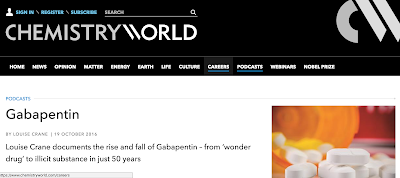This is my entry for the Wellcome Trust Science Writing Prize 2014 (in association with the Guardian and the Observer). It made the 20-strong shortlist from over 600 entries. The entire shortlist and the winning entries can be found here.
“Try LSD 100 intramuscular,” read the note passed to Laura
Huxley by her dying husband. And so the wife of author
Aldous Huxley injected him with the powerful psychedelic
lysergic acid diethylamide. He died five hours later on 22
November 1963, his face an expression of “complete bliss and
love”.
Before it was banned in 1968, a thousand clinical studies were
conducted on LSD, demonstrating its use in treatment for
conditions including alcoholism, depression and neurosis. For
the next four decades, no further LSD psychotherapy research
was published. Until now.
The California-based Multidisciplinary Association for
Psychedelic Studies (MAPS) published a study in March 2014
investigating the effects of LSD on anxiety related to
advanced-stage illness. In a small trial, 12 patients were given
LSD before two psychotherapy sessions. The results of this
pilot study show a reduction in anxiety levels, and, according
to MAPS founder Rick Doblin, justify further investigation.
Speaking to the Independent, Swiss-based lead researcher Peter
Gasser confirmed that the beneficial effects of the treatment
were stable over time and that no patients experienced
“noteworthy adverse effects”.
UK-based psychiatrist Dr Ben Sessa hopes the research will
lead to LSD treatment not just for patients with terminal illness
but “across the board for people of all ages with anxiety
disorders. Existing treatments mask symptoms and can be lifelong.
Psychedelic therapy would be a single treatment – it
could treat anxiety disorder so it doesn’t return.”
Peter, a 50-year-old Austrian social worker, described his
treatment in the MAPS press release: “My LSD experience
brought back… a timeless moment when the universe didn’t
seem like a trap, but like a revelation of utter beauty.” Sessa
explains: “The psychedelic experience is particularly wellattuned
to the existential issues of death and dying – there is
something about psychedelics that connects people with the
other-worldliness of death.”
Doblin said research by MAPS has not focused on the
mechanism, since they only need to demonstrate it works
safely, not how it works, to get LSD approved as a medicine. This study builds on a foundation of research that began in the
1960s at Spring Grove State Hospital, Baltimore, where
psychiatrist Stanislav Grof pioneered the use of LSD to treat
fear of dying. This was cut short when LSD was criminalised
in 1968, a move that Doblin suggests was due to the drug’s use
by anti-establishment hippies and anti-Vietnam War groups.
Naturally, there are concerns over the danger of using a class A
illegal drug as a medicine. “There's an enormous amount of
research that demonstrates LSD is physiologically safe,” says
Doblin. MAPS Director of Development Virginia Wright says
that due to LSD’s bad reputation, US researchers were
unwilling to carry out the current study despite its approval by
the US Food and Drug Administration. The trial took place in
Switzerland, where there is more openness and interest in LSD
research, not least because it was discovered there in 1938 by
chemist Albert Hofmann. Nevertheless, when the trial was
approved in 2008, the Swiss People’s Party (the largest in the
country) told Bloomberg that if international experts come to
the conclusion that LSD could be seen as a medication, “we
would have another look at the situation. But for the moment
our position is still a conservative one.”
To gain approval, there needs to be a much bigger study with a
range of different patients to demonstrate wider efficacy. But
this requires money – potentially tens of thousands of pounds.
Drug development is often funded by pharmaceutical
companies, and according to Sessa, these companies are
unwilling to sponsor the process of bringing LSD to market.
Since LSD might only be used once or twice in therapy, profit
from drug sales would be limited.
LSD’s reputation means public funding is scarce – MAPS
relies on donations from individuals and charities. But, says
Doblin, “So far no major foundation that supports medical
research has funded psychedelic research.”
At the time of writing, MAPS does not have funding for further
LSD research. But other psychiatric research is making this
type of work more commonplace – a study on ketamine and a
Medical Research Council-funded investigation into magic
mushrooms are both exploring effects on depression. As the
stigma around illegal drug research lessens and red tape is
removed, more studies may yet convince regulators to put LSD
on the NHS.
Written by Louise Crane
Edited by Mun-Keat Looi














